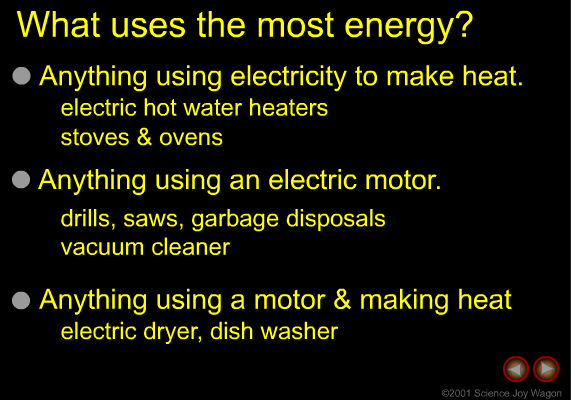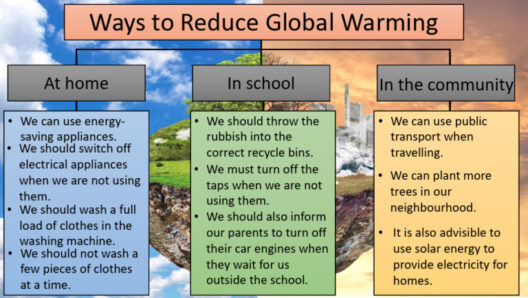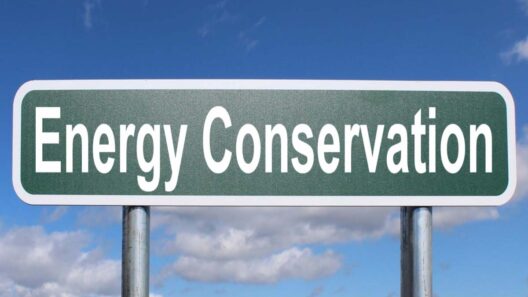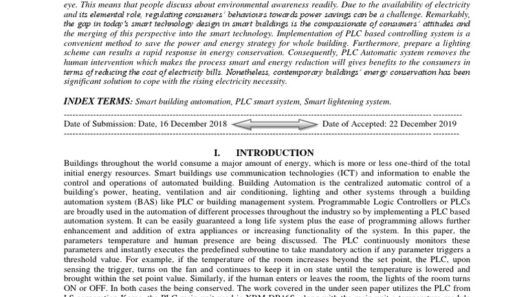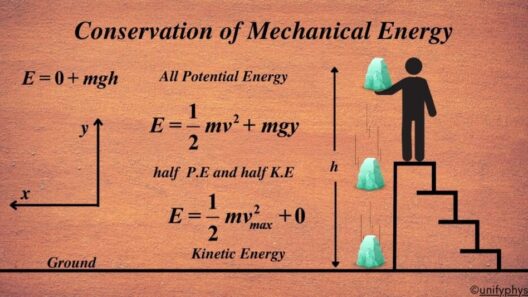Conserving energy is an essential concept in environmental science, representing a critical intersection between human activity and the health of our planet. In its simplest terms, energy conservation refers to the practice of reducing energy consumption to prolong the availability of resources and mitigate environmental impacts. It entails not just individual habits, but also systemic changes in industries, economies, and lifestyles. Understanding what energy conservation encompasses, why it matters, and the implications for both the environment and human health is crucial in a world grappling with the consequences of climate change.
At the core of energy conservation lies the principle of efficiency. Energy is often wasted in various forms, be it through outdated appliances, unregulated heating systems, or even the unresponsiveness of infrastructure to modern demands. By enhancing energy efficiency, we diminish the total energy requirement while maintaining the same quality of life. This reduction can be achieved through technology, behavior change, policy implementation, and education, all geared towards fostering a culture of sustainability.
One prevalent observation in the discourse on energy conservation is the paradox of abundance versus scarcity. Despite living in an age rife with technological advancements and seemingly endless energy sources, many communities struggle with energy poverty. This thriving yet troubled relationship points to a deeper issue: the actual availability of resources is limited, and reckless consumption patterns can jeopardize not only current ecosystems but also future generational prospects. The drive for economic growth often overshadows the imperative to conserve, leading to unsustainable practices that destabilize our environmental systems.
The relevance of conserving energy transcends mere resource management; it is intrinsically linked to climate change mitigation. The combustion of fossil fuels for energy is one of the most significant contributors to greenhouse gas emissions. By conserving energy, we can effectively reduce our carbon footprint. This entails embracing renewable energy sources such as solar, wind, and hydropower, which offer cleaner alternatives while simultaneously promoting energy independence. Transitioning to renewables signifies a tactical move toward curbing reliance on fossil fuels, thus invigorating the fight against global warming.
Moreover, energy conservation plays a vital role in protecting biodiversity. The encroachment of human activities on natural habitats often stems from the demands of energy production and consumption. When energy is conserved, the need for disruptive practices such as mining, drilling, and deforestation diminishes. These practices not only harm local ecosystems but also threaten numerous species with extinction. By fostering energy conservation, we establish a more harmonious coexistence with the flora and fauna that share our planet, an essential aspect of ecological integrity.
The social dimensions of energy conservation warrant attention as well. Inadequate energy access often exacerbates socio-economic disparities. Low-income populations are frequently the hardest hit by spiraling energy costs and may resort to inefficient, harmful practices to meet their needs. Infrastructure improvements aimed at energy conservation can lead to enhanced quality of life, offering vulnerable communities reliable access to clean energy. Policies that promote energy efficiency can empower individuals and communities, transforming economic burdens into opportunities for growth and resilience.
Addressing energy conservation also entails recognizing the psychological and cultural factors that influence energy use behaviors. Many individuals remain blissfully unaware of the cumulative effect of seemingly small choices. Turning off lights when not in use, reducing water heater temperature, and utilizing energy-efficient appliances may seem trivial, but collectively they yield considerable impacts. Education plays a pivotal role in reframing perceptions around energy consumption, fostering a sense of agency among individuals to influence larger systemic changes. By instilling awareness and cultivating an ethos of conservation, individuals can become proactive participants in the global movement towards sustainability.
The implications of energy conservation extend into the realm of economic vitality. A transition toward energy-efficient technologies not only conserves resources but also drives innovation. The burgeoning green technologies sector is ripe for investment, spurring job creation and economic diversification. By prioritizing conservation, nations can position themselves as leaders in the emergent green economy, enhancing their competitive edge on a global scale. Thus, energy conservation becomes intertwined with the larger narrative of economic prosperity that respects environmental limits.
Despite the abundant rationale supporting energy conservation, challenges remain in its widespread implementation. Political inertia, vested interests in fossil fuel industries, and the complexity of behavioral change pose substantial hurdles. Nonetheless, collective action—from individuals, governments, and corporations—can catalyze transformative shifts. Policy frameworks that incentivize energy conservation, subsidies for renewable energy, and community engagement programs can create robust pathways for progress.
In conclusion, conserving energy is an imperative that resonates deeply within environmental science and broader societal contexts. It is not merely about reducing energy use; it encompasses a complex web of relationships involving ecological health, social equity, economic transformation, and cultural beliefs. The multifaceted nature of energy conservation signifies its potential to address pressing global challenges, and the urgency with which we approach this endeavor will ultimately determine the ecological legacy we leave for future generations. It is a call to action—one that requires collective commitment to redefine our relationship with energy and, by extension, our planet.



